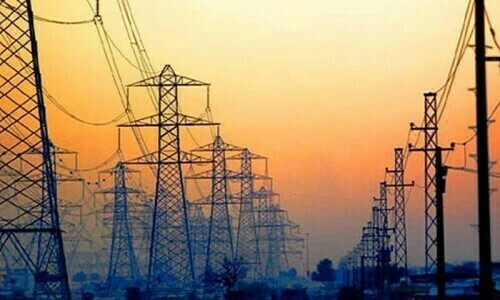ISLAMABAD: Internet services in Pakistan will remain slow until Saturday, as work to move traffic from a damaged submarine cable faces delays, Pakistan Telecommunication Company Ltd (PTCL) said.
The Asia-Africa-Europe-1 (AAE-1) cable, one of the seven internet cables landing in Pakistan, developed a fault near Qatar on Thursday, leaving the country short of at least one terabits per second (tbps) bandwidth.
In case of such a fault, the traffic of the damaged cable is moved to other cables to ensure smooth internet.
However, the shifting of AAE-1 traffic to other submarine cables has been delayed by more than 36 hours.
PTCL says shifting traffic from damaged cable will take time
The AAE-1, with a capacity to deliver around 2.7 terabits per second of data, was being used for 1tbps traffic.
In a statement on Friday, PTCL, which is part of a consortium managing the AAE-1 cable, said repair teams were “diligently” working to resolve the issues.
A senior official of PTCL said the internet speed would become normal by Saturday night as the entire data of the faulty cable would be hooked with the SEA-ME-WE 4 (South East Asia–Middle East–Western Europe 4) and IMEWE (India-Middle East-Western Europe) cables also operated by PTCL.
“The delay in shifting the AAE-1 traffic to the other two systems was due to the slow technical response from international partners based in the Gulf region,” the official said.
He added that only 40 to 50pc of the cables’ total capacity is utilised to keep space for shifting data service in case of such emergencies.
The fault is unlikely to be fixed anytime soon as repair works on submarine cables can last for months.
The previous fault in the AAE-1 cable, which occurred in Pakistani territorial water in 2021, took almost 45 days to be repaired, a PTCL official previously said.
These faults take between 20 days to four months to get fixed depending upon the terrain and weather conditions of the area where the fault occurred and other factors.
“It can even take up to two days to detect the fault at the undersea cable and the repair work is carried out by highly trained personnel through specialised ships,” PTCL officials said in a recent media briefing.
Submarine cables are primarily damaged due to ship anchors’ dragging along the seabed, pressures from sea currents and erratic power supply.
The general misconception of sharks chewing on the cables was also dismissed by the officials.
The AAE-1 cable began operational in 2017, and it connects Vietnam, Singapore, Malaysia, Thailand, Pakistan, India, Oman, the United Arab Emirates, Qatar, Saudi Arabia, Egypt, Greece, Italy and France.
Published in Dawn, January 4th, 2025











































Dear visitor, the comments section is undergoing an overhaul and will return soon.